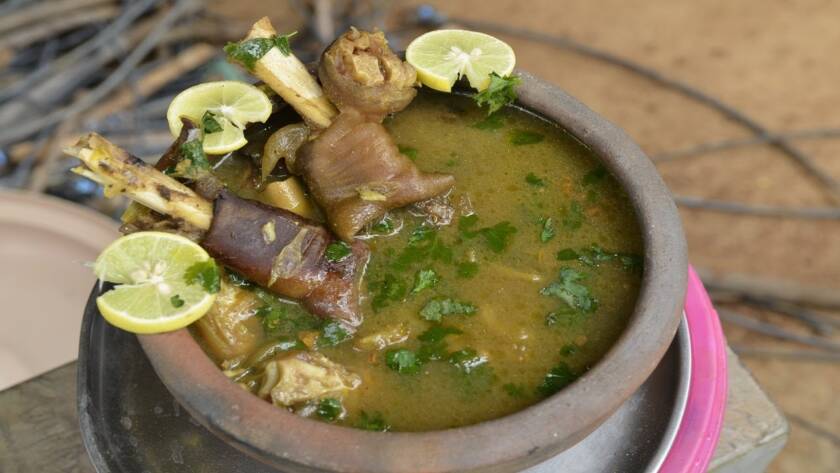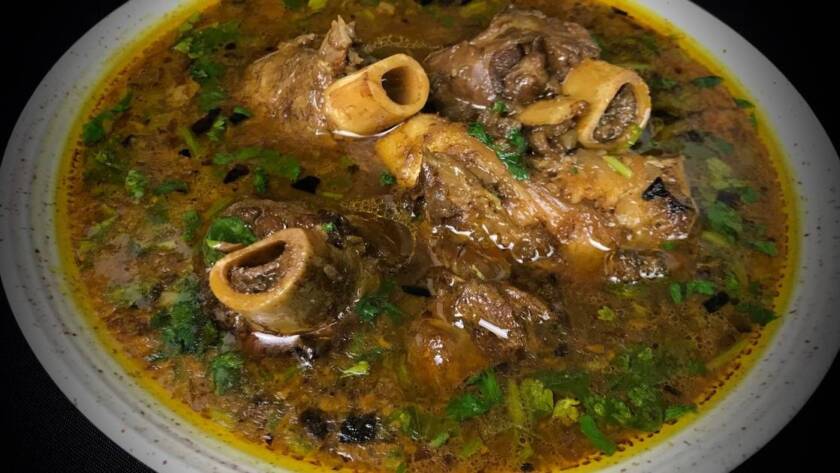Exploring the Legacy of Mutton Kal Soup
Embark on a culinary expedition into the heart of South Indian traditions with Mutton Kal Soup, a soul-warming dish that transcends mere sustenance. This flavorsome soup, deeply rooted in the cultural tapestry of the region, holds not just the richness of mutton but also the essence of time-honored practices. In this article, let’s unravel the history and cultural significance of Mutton Kal Soup, understanding why it continues to be a cherished part of South Indian kitchens.
History:
Mutton Kal Soup finds its origins in the culinary heritage of South India, particularly in Tamil Nadu and Kerala. The word “Kal” refers to the bone marrow, a key component that imparts a distinctive richness to the soup. Historically, this dish has been prepared in homes for its nourishing qualities, making it a comforting choice during cold weather or convalescence.
The preparation of Mutton Kal Soup aligns with the culinary practices passed down through generations, highlighting the importance of extracting flavors from bones to create a hearty and wholesome broth. This practice of utilizing bones for soup reflects the resourcefulness of South Indian kitchens, minimizing waste while maximizing nutritional benefits.
This culinary gem has been handed down through generations, evolving from a regal indulgence to a cherished home-cooked delight. The careful selection of spices and the meticulous preparation of the nalli (marrow) showcase the culinary prowess of South Asian cooks who sought to create dishes that were not just flavorful but also symbolized a cultural legacy.


Cultural Significance:
Mutton Kal Soup is more than just a culinary creation; it is a reflection of South Indian culture and hospitality. In many households, the preparation of this soup is considered an act of care and affection, often served to guests as a welcoming gesture.
The use of spices, herbs, and slow-cooking techniques in Mutton Kal Soup showcases the region’s commitment to culinary excellence. The soup is known not only for its delectable taste but also for its potential health benefits, as bone marrow is believed to contain nutrients that support immune function and overall well-being.
Whether enjoyed as a soothing remedy during the monsoons or as a festive treat, Mutton Kal Soup holds cultural significance in the rhythm of South Indian life. Its presence on the dining table signifies more than just a meal; it is a testament to the enduring connection between food, health, and heritage.
Conclusion:
Mutton Kal Soup invites you to partake in a centuries-old tradition that goes beyond the realm of ordinary culinary experiences. As you savor the robust flavors and nourishing qualities of this soup, you are not just enjoying a dish; you are immersing yourself in the legacy of South Indian culinary artistry. Let the history and cultural significance of Mutton Kal Soup add a new layer of appreciation to your dining experience, celebrating the time-honored traditions that continue to shape the culinary landscape of the region.

